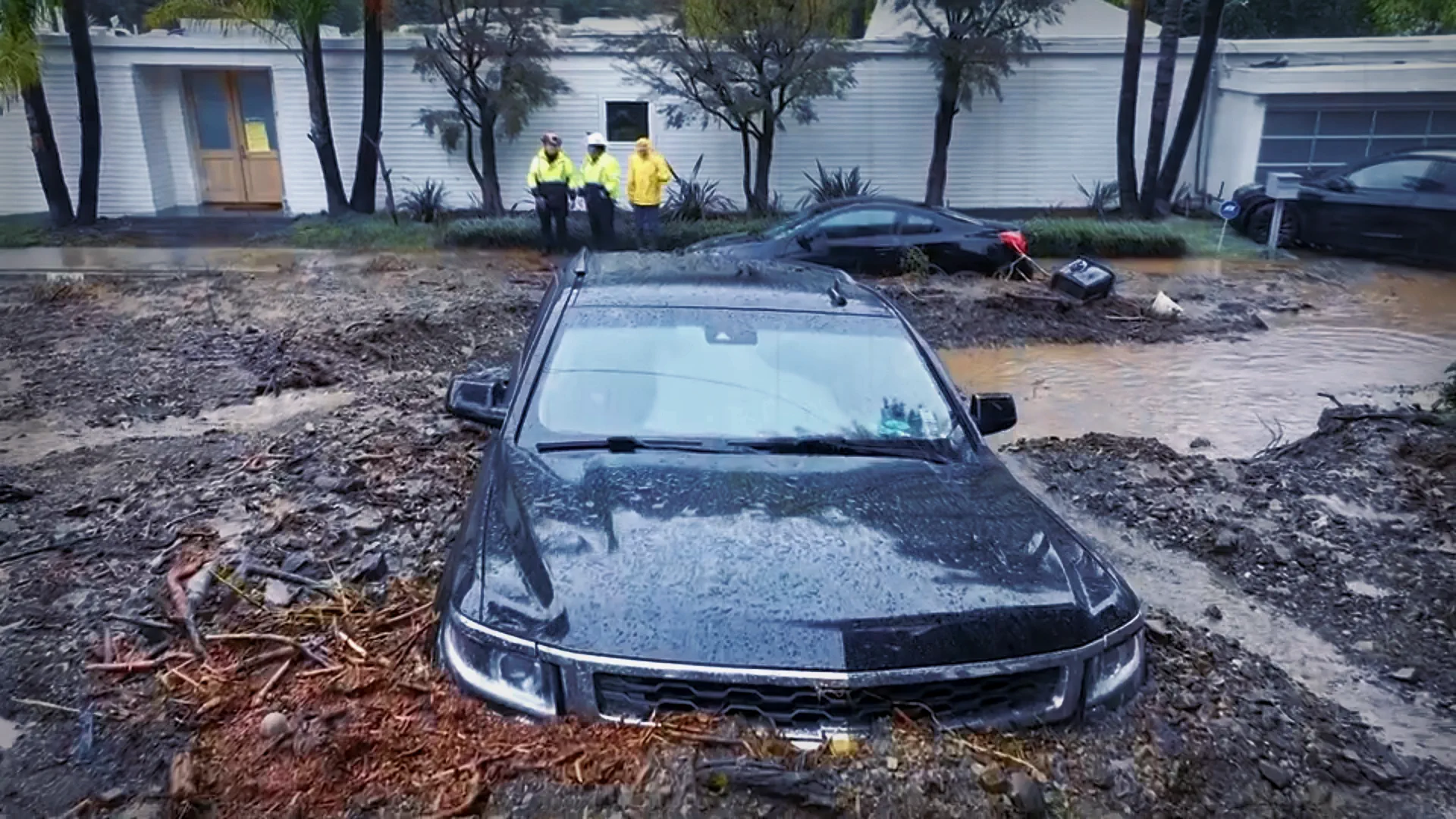
Pineapple Express storm drenches California. Damage across Los Angeles.
A massive storm hit California, led to flash floods, and caused chaos and havoc on Monday, February 5. This intense weather event, known as the Pineapple Express storm, brought record-breaking amounts of rain, fierce winds, flash warning, and destructive mudslides. The severe weather storm, fueled by an atmospheric river, affected the entire state, leading to tragic incidents, such as falling trees claiming the lives of at least three people.
The impact of the storm was widespread, with flood warnings affecting nearly 38 million people across California and into Arizona. Los Angeles county alone, home to around 10 million people, was under a flood alert. The dangerous conditions prompted residents in hillside communities of Los Angeles to evacuate as streets turned into rushing rivers overnight.
After the storm hit California, the governor declared a state of emergency for multiple counties, including Los Angeles, Orange, Riverside, San Bernardino, San Diego, San Luis Obispo, Santa Barbara, and Ventura. The storm's powerful winds knocked down power lines, leaving half a million homes and businesses without electricity. While progress was made in restoring power by the afternoon, about 379,000 customers were still in the dark.
The storm damage extended to transportation, causing flight disruptions at major California airports. Los Angeles International Airport experienced over 1,000 flight delays since Sunday, while San Francisco International Airport had more than 200 cancellations and 800 delays during the same period. Disruptions also affected airports in San Diego, Oakland, and Sacramento. In addition to these challenges, the California storm triggered an avalanche in the Lee Canyon and Mount Charleston areas near Las Vegas, Nevada. Fortunately, those reported missing were later found.
The Pineapple Express system, characterized by atmospheric rivers gathering moisture from the Pacific near the Hawaiian islands, was identified as the cause of the severe weather in California.
Tragically, the Pineapple Express storm claimed lives. Speaking about California storm deaths, an elderly man in Yuba City was killed by a falling redwood tree in his backyard. In Boulder Creek, a small town in the Santa Cruz mountains, another person lost their life when a tree fell on a home. Meanwhile, in Sacramento county, a 41-year-old man was fatally struck by a falling tree when winds reached close to 70 mph. So the number of California storm deaths increased to 3.
The aftermath of the California storm serves as a somber reminder of the unpredictable and destructive nature of such severe weather events.
Is there any active flood warning?
According to the National Weather Service, on Tuesday morning, February 6, a flash flood warning was in force across the area that includes the Los Angeles area cities of Beverly Hills and West Hollywood. Some other parts also include Santa Monica and Malibu. Authorities cautioned that the soil is already soaked, unable to absorb any additional rainfall.